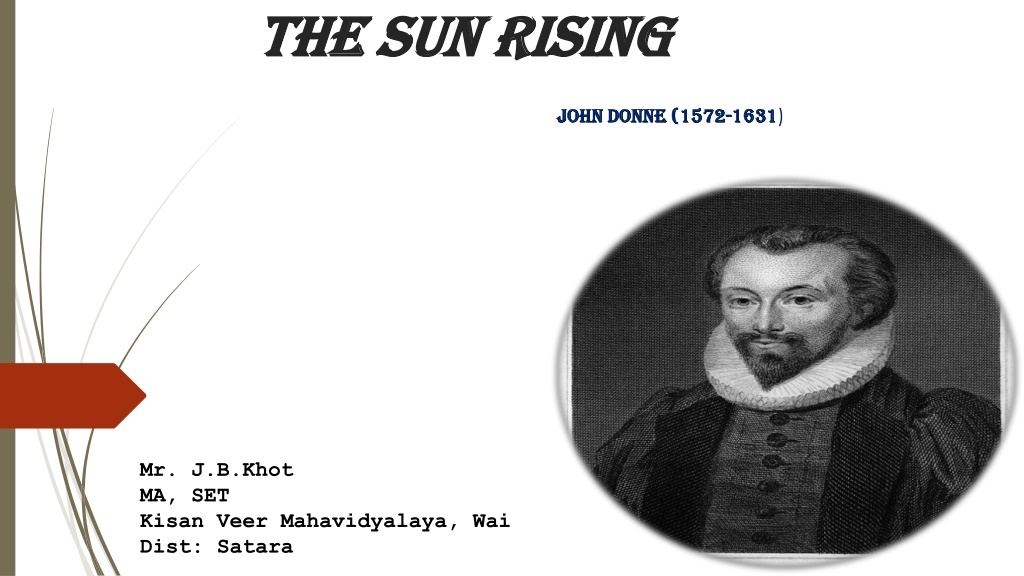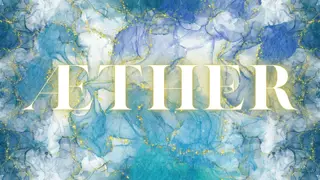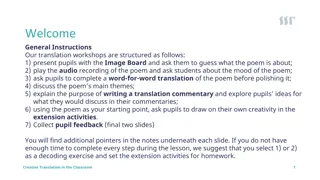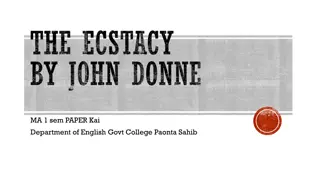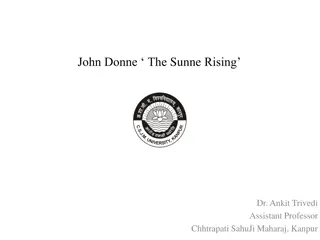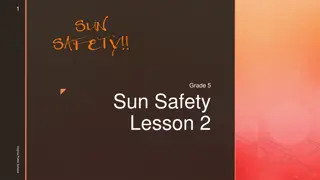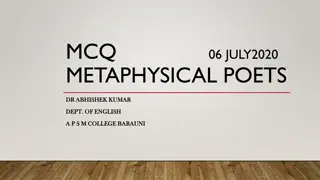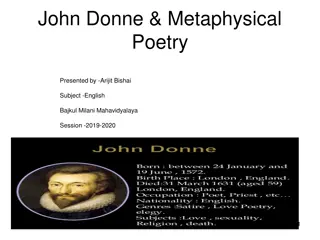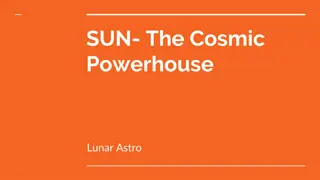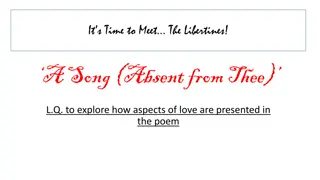Analysis of "The Sun Rising" by John Donne: A Metaphysical Love Poem
John Donne's "The Sun Rising" is a metaphysical love poem that personifies the sun, showcasing the speaker's defiance of its intrusion into his intimate space with his lover. The poem reflects themes of love, time, and humanity's relationship with nature, capturing the speaker's desire to remain entwined with his beloved in their own world. Donne's use of vivid imagery, wit, and metaphysical conceits adds depth to this enchanting exploration of love and its power to transcend worldly constraints.
Download Presentation

Please find below an Image/Link to download the presentation.
The content on the website is provided AS IS for your information and personal use only. It may not be sold, licensed, or shared on other websites without obtaining consent from the author. Download presentation by click this link. If you encounter any issues during the download, it is possible that the publisher has removed the file from their server.
E N D
Presentation Transcript
THE SUN RISING THE SUN RISING 1631) JOHN DONNE (1572 JOHN DONNE (1572- -1631 Mr. J.B.Khot MA, SET Kisan Veer Mahavidyalaya, Wai Dist: Satara
Introduction to the Poet An English poet, scholar, soldier and secretary. He is considered the pre-eminent representative of the metaphysical poets. His poetical works include sonnets, love poems, religious poems, Latin translations, epigrams, elegies songs, and satires. Famous for his mastery of metaphysical conceits. NOTABLE WORKS Holy Sonnets Death, Be Not Proud The Canonization A Valediction: Forbidding Mourning Batter My Heart Biathanatos Songs and Sonnets
Introduction to the Poem One of Donnes most charming and successful metaphysical love poems. The poem personifies the sun. A love poem set in the speaker's bedroom, where he and his lover lay in bed presumably after a night of passion. The speaker orders the sun to warm his bed so that he and his lover can stay there all day instead of getting up to go to work. "The Sun Rising," was published after his death in the 1633.
Stanza I Busy old fool, unruly sun, Why dost thou thus, Through windows, and through curtains call on us? Must to thy motions lovers' seasons run? Saucy pedantic wretch, go chide Late school boys and sour prentices, Go tell court huntsmen that the king will ride, Call country ants to harvest offices, Love, all alike, no season knows nor clime, Nor hours, days, months, which are the rags of time.
STANZA II STANZA II Thy beams, so reverend and strong Why shouldst thou think? I could eclipse and cloud them with a wink, But that I would not lose her sight so long; If her eyes have not blinded thine, Look, and tomorrow late, tell me, Whether both th' Indias of spice and mine Be where thou leftst them, or lie here with me. Ask for those kings whom thou saw'st yesterday, And thou shalt hear, All here in one bed lay.
STANZA III She's all states, and all princes, I, Nothing else is. Princes do but play us; compared to this, All honor's mimic, all wealth alchemy. Thou, sun, art half as happy as we, In that the world's contracted thus. Thine age asks ease, and since thy duties be To warm the world, that's done in warming us. Shine here to us, and thou art everywhere; This bed thy center is, these walls, thy sphere.
THANK THANK YOU YOU
